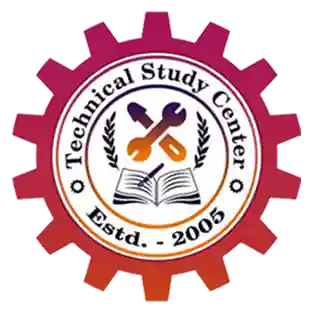The world is moving on wheels—cars, bikes, trucks, and heavy-duty vehicles power industries and daily life. Behind every smoothly running vehicle is a skilled mechanic who understands how engines breathe, how brakes grip, and how gears shift effortlessly. Vehicle mechanics is not just about repairing parts; it’s about mastering technology, improving efficiency, and ensuring safety on roads.
At Technical Study Center, we offer expert training in ITI Vehicle Mechanic courses, helping students develop practical skills, understand new automotive technologies, and prepare for government and private sector job opportunities. Our focus is not just on passing exams but on making students industry-ready with real-world expertise.
Smart Learning Strategies for Future Vehicle Mechanics
Most ITI students believe that vehicle mechanics is just about fixing engines and changing oil. But to become a top-class mechanic, one must go beyond basic training and learn advanced skills that set them apart in the industry.
1. Mastering Vehicle Diagnostics
A skilled mechanic can identify a problem just by sound, smell, or performance. But this skill does not come overnight—it needs smart training.
- Listening to the Engine – Different types of noises can mean different problems. A knocking sound could mean a loose piston, while a whistling sound may indicate an air leak.
- Understanding Smoke Colors – White smoke means coolant leakage, blue smoke means burning oil, and black smoke means fuel is not burning properly. Learning these signs helps mechanics diagnose problems quickly.
- Using Digital Scanners & Sensors – Modern vehicles come with OBD (On-Board Diagnostics) systems that show error codes. Learning how to use diagnostic tools helps in quick and accurate problem-solving.
By combining old-school observation with new-age technology, mechanics can work faster and more effectively.
2. Learning More Than Just Petrol & Diesel
Most students only focus on traditional petrol and diesel engines, but the automotive world is changing. Hybrid and electric vehicles (EVs) are the future, and a mechanic who understands them will always be in demand.
- Hybrid Engine Systems – Vehicles like Toyota Prius and Honda City Hybrid use both fuel and battery. Understanding how electric and petrol engines work together is a must for modern mechanics.
- Electric Vehicle Maintenance – EVs don’t need oil changes, but their batteries, sensors, and wiring require specialized knowledge. Knowing how to handle high-voltage systems safely gives mechanics an edge in the industry.
- CNG & LPG Vehicle Repairs – Many taxis and commercial vehicles now use Compressed Natural Gas (CNG) or Liquid Petroleum Gas (LPG). Learning their maintenance helps mechanics work with a wider range of vehicles.
3. Mastering the Art of Fuel Efficiency
A good mechanic doesn’t just fix cars; they help vehicle owners save fuel and money.
- The Right Tire Pressure Saves Fuel – If the tires are under-inflated, fuel consumption increases. A skilled mechanic always checks and maintains the correct tire pressure.
- Cleaning Air Filters for Better Performance – A dirty air filter makes the engine work harder, reducing mileage. Learning how to clean and replace air filters improves fuel efficiency.
- Using the Right Engine Oil – Different engines require different types of oil. Using the wrong one can cause higher fuel consumption and faster engine wear.
Knowing how small changes improve mileage makes a mechanic more valuable.
4. Preparing for ITI Exams & Government Job Opportunities
Many government departments like Indian Railways, State Transport, Defense Forces, and PSUs like BHEL, IOCL, and ONGC recruit ITI-trained vehicle mechanics. At Technical Study Center, we help students prepare for these opportunities through:
- Exam-Focused Study Plans – Covering vehicle mechanics theory, safety procedures, and practical applications.
- Mock Tests & Interview Preparation – Practicing with real ITI exam patterns and technical interview questions.
- Shortcut Techniques for Quick Repairs – Learning fast problem-solving methods for government skill tests.
With the right training and preparation, students can easily secure jobs in both government and private sectors.
5. Hands-On Training with Real Vehicles
Instead of just learning from books, students at Technical Study Center train with real cars, bikes, and commercial vehicles.
- Engine Overhaul Training – Completely dismantling and rebuilding an engine to understand every part.
- Transmission & Clutch Repair – Learning how to fix gear shifting issues and clutch problems.
- Brake System Tuning – Understanding ABS (Anti-lock Braking System) and traditional braking methods.
This hands-on training boosts confidence and makes students job-ready.
6. Developing Professional Skills for Success
A skilled mechanic must also be a good communicator and a responsible professional.
- Customer Handling Skills – Explaining repair issues to vehicle owners in simple words helps build trust.
- Time Management – Learning how to repair vehicles quickly and efficiently improves customer satisfaction.
- Safety Awareness – Mechanics work with hot engines, heavy tools, and sharp objects. Learning proper safety protocols prevents injuries.
At Technical Study Center, we ensure students develop both technical and professional skills to succeed in the industry.
